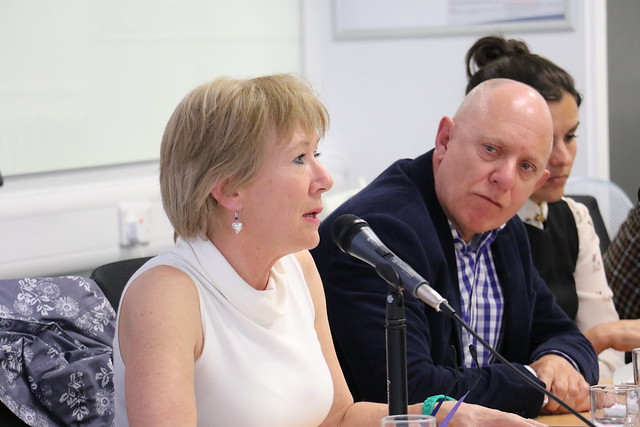The lead researcher, Margie Buchanan- Smith said that in the early days of the Nepal earthquake response, there was a close correlation between the information needs of affected communities, and the information provided by government and humanitarian responders. However, seven months later, there was an overwhelming demand for more information on what the government was doing about cash handouts or shelter.
Nepali citizens, she found, did not feel consulted or involved in the response to the disaster that had changed their lives. The research, she hoped, would do more to put the ‘human back into humanitarianism’.
The research also highlighted that women in particular preferred to hear information in interpersonal, face to face engagements yet international responders tended to use radio and other mass media. In rural Nepal, being able to sit and listen to the radio is a luxury for most women. A briefing paper on the findings is available here.
Also presenting at the event, Stijn Aelbers discussed the ‘Open Mike’ project that was established in Nepal to track what people were saying, and bring that information into the policy level of the response.
BBC Media Action were also active in Nepal, disseminating information about what to do in an earthquake within hours of the disaster. Theo Hannides explained the evaluation proceeses the organisation uses to evaluate their communication work – including a recent report that considered interventions on Ebola in West Africa, which can be read here.





